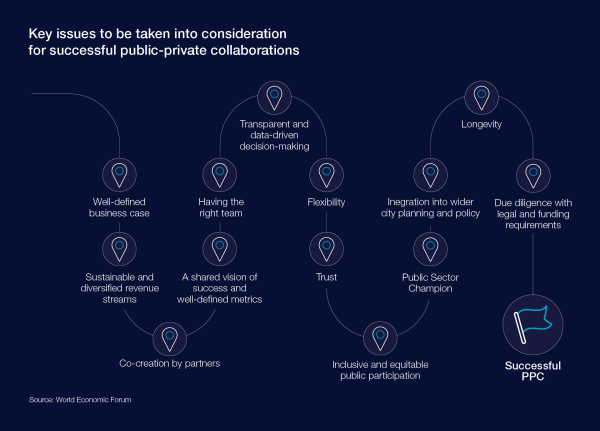Article by Neil Britto; Suparno Banerjee and Constanza Movsichoff: “The challenges associated with the design, development and maintenance of digital urban infrastructure are substantial and have to balance the needs and incentives of both public and private stakeholders. While proofs of concepts and test-beds have been tried and are often successful, scaling these to city scale has been challenging for a number of reasons:
- Scope. There is too often a focus on solutions that address narrow aspects of the city’s needs.
- Capital requirements. Many cities do not have adequate capital for deploying solutions at scale and might struggle to attract investment from the private sector.
- Procurement. Procurement models favor vendor-buyer relationships as opposed to multi-year, multi-enterprise, complex partnerships.
- Time scales. Some of the most pressing challenges that cities face will need multiple years to address. These complex journeys need partnerships that can withstand the pressures of time, budgets and expectations.
- Data. A nuanced understanding of public concern over data sourcing and use can be critical for a successful public-private collaboration. These dynamics contribute to the unique challenges and opportunities for smart city public-private collaborations that range from intelligent street lighting to broadband access.
In recognition of these challenges, the World Economic Forum’s G20 Global Smart Cities Alliance assembled a taskforce to look for best practices and model policies in the area of public-private collaborations in 2021. That taskforce, comprised of experts and officers from cities, companies and institutions deeply involved in smart city projects, compiled case studies, insights and feedback from across the sector. As members of that taskforce, we are happy to provide a distillation of these resources in the form of our new Primer for Smart City Public Private Collaborations…(More)”.

